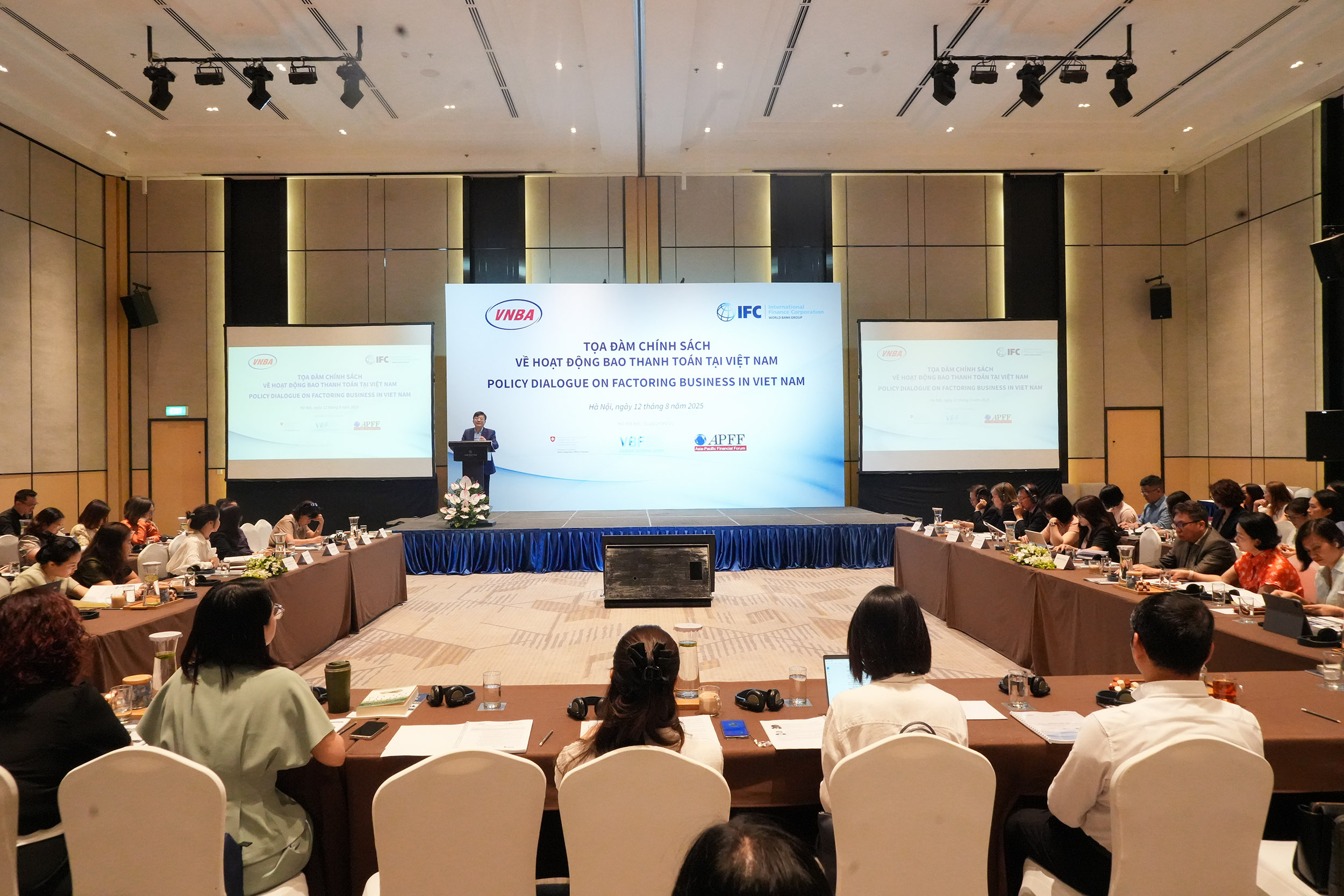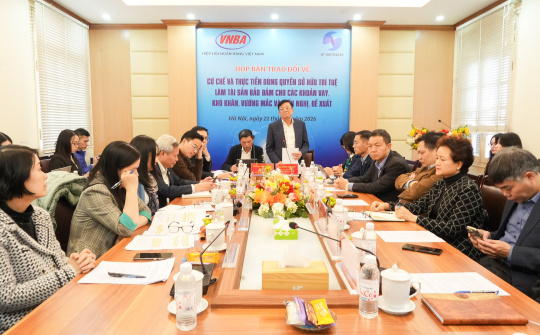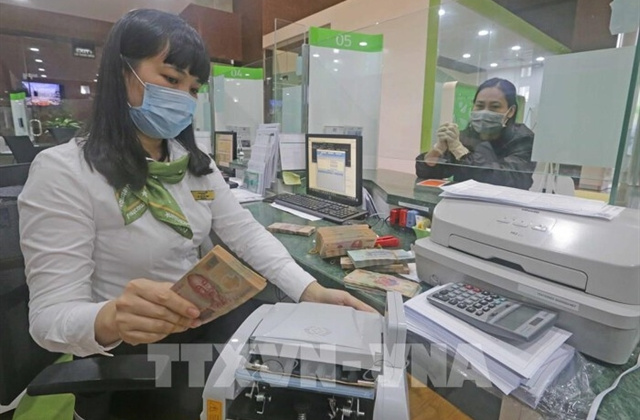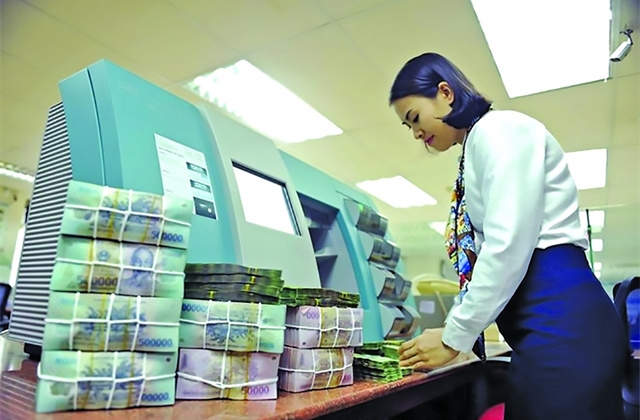The Factoring landscape and legal framework in Vietnam
Recently, the State Bank of Vietnam (SBV) issued Circular No. 20/2024/TT-NHNN, which took effect on July 1, 2024. This circular replaces the Circular No. 02/2017/TT-NHNN, creating a clearer legal framework and a safer, more flexible business environment for factoring services and related services provided by credit institutions.
Key highlights of this new Circular include:
-
Scope and Application: The circular applies to a broader range of entities, including commercial banks, financial companies, factoring companies, foreign bank branches, and other organizations and individuals involved in factoring.
-
Diverse Factoring Methods: The circular clearly outlines three main factoring methods, enabling credit institutions to offer a variety of solutions tailored to their clients' needs:
-
Single-invoice factoring: Each factoring transaction is carried out under a separate contract.
-
Factoring on a credit line basis: The credit institution and the client agree on a maximum debt limit and the duration for which this limit is maintained, giving the client more flexibility in their financial planning.
-
Syndicated factoring: Two or more credit institutions perform factoring for one or more accounts receivable, with one institution acting as the lead. This method is particularly important for large-scale or complex transactions.
-
-
Currency: The circular allows for the flexible use of Vietnamese Dong or the currency of the accounts receivable, in line with foreign exchange management regulations. In specific cases, credit institutions may decide to factor accounts receivable in foreign currency, for example, when the buyer is a non-resident or has sufficient foreign currency sources.
-
Interest Rates and Fees: Factoring interest rates and fees are agreed upon by the parties, in accordance with the law. A notable regulation concerns overdue interest: if a factoring amount becomes overdue, the applicable interest rate must not exceed 150% of the in-term factoring interest rate at the time the debt becomes overdue. This regulation provides a self-protection mechanism for credit institutions while maintaining a balanced relationship with their clients.
-
Cases Where Factoring is Prohibited: Circular No. 20/2024/TT-NHNN also clearly lists seven cases in which credit institutions are not permitted to engage in factoring. These include accounts receivable arising from contracts prohibited by law; those with a remaining term of one year or more; those with a non-transferability clause; those arising from the financial, banking, or insurance sectors; those that have already been factored or used to secure other debts; those that are already overdue; or those that are currently under dispute.

The Dialogue view
Current implementation and challenges
Despite some pioneering banks, the factoring services in Vietnam is still considered "nascent, with slow growth and modest turnover" and "not yet truly developed." Participation in international organizations remains limited, with only eight Vietnamese credit institutions as members of the FCI Association, including four domestic commercial banks and four foreign bank branches.
During the event, representatives from several large domestic banks that are actively implementing this service, particularly within the framework of supply chain finance solutions, presented their papers.
-
Techcombank, for example, offers both domestic and export factoring solutions, allowing for an advance of up to 100% of the accounts receivable value. Leveraging its technological advantages and an online disbursement and automated debt collection support system, the bank guarantees disbursement within just three hours of receiving a request. Techcombank also employs a chain and group service model, benefiting both buyers and sellers, strengthening partnerships, and optimizing operational costs.
-
Vietcombank proactively designs specific working capital finance products for corporate supply and distribution chains, based on approved invoices. These solutions are also accompanied by comprehensive payment and cash flow management services, aiming for a complete supply chain finance model.
However, despite these significant efforts, domestic commercial banks generally face numerous challenges, especially when implementing international factoring. A major hurdle is the disadvantage in operational networks compared to foreign banks. To provide international factoring services, a bank needs the capability to gather information on foreign buyers and collect debts from them. This is a clear advantage for foreign banks with global operational networks, whereas domestic banks often face significant difficulties in this process.
The potential for factoring development in Vietnam
The potential for factoring in Vietnam is significant, the current outstanding balance of factoring is only about 16,000 billion VND, accounting for a very small proportion compared to the total outstanding balance of the whole system of nearly 17 million billion VND. This shows that the development potential of factoring services in Vietnam are still very large and that is driven by several key factors:
Favorable macroeconomic context: Vietnam's economy achieved an impressive growth rate of 7.09% in 2024. Coupled with the high credit growth targets of banks for 2025, the demand for working capital among businesses is projected to increase sharply.
Shift in international trade: The global trend of moving from Letter of Credit (L/C) to open account financing and supply chain finance creates a vast potential market for factoring. Vietnamese businesses, especially those in the export sector, will increasingly need flexible solutions to compete in the international market.
Demand from SMEs: According to one report, over 70% of SMEs in India face cash flow challenges, and the situation is likely similar in Vietnam. Factoring is an ideal solution to help these businesses access capital quickly and efficiently, especially when they lack sufficient collateral.
Supportive policies and initiatives: The Communist Party of Vietnam's recent Resolution No. 68-NQ/TW on private economic development, along with various supporting mechanisms and policies for the finance and banking sectors, is opening new doors. The co-organization of a policy seminar on factoring by the Vietnam Banks Association (VNBA) and the International Finance Corporation (IFC) demonstrates the deep interest of policymakers, industry leaders, and credit institutions in this service. Support from international organizations like the IFC, BWG, HSBC, Citi, and others will play a crucial role in building a conducive environment for factoring to flourish.
Recommendations to promote factoring development in Vietnam
To overcome challenges and fully leverage the potential, several recommendations have been put forth to foster the sustainable development of factoring in Vietnam.
Continue to improve the legal framework
While Circular 20/2024/TT-NHNN marks a significant step forward, regulatory bodies should continue to monitor and evaluate its impact after implementation. The relevant authorities need to provide comprehensive guidance for both banks and businesses on factoring operations, including determining the pledge status, registering security interests for accounts receivable, accounting for factoring at the business level, and performing international factoring services for non-resident clients.
Enhance international cooperation
SBV and VNBA should strengthen cooperation with international organizations like FCI and IFC. Simultaneously, they should encourage and support domestic credit institutions to participate more deeply in international associations. This will allow them to learn from experience, adopt advanced international standards and practices, and expand their partner networks.
Invest in digitization and automation
The SBV should swiftly establish an accounts receivable collateral data center to help banks search for and register security interests, preventing duplicate financing. Banks need to continue investing heavily in digital factoring platforms, integrating advanced technologies such as AI and machine learning. Automating the processes of appraisal, risk management, and accounts receivable tracking will help reduce operational costs, speed up transaction processing (like Techcombank's three-hour disbursement commitment), and enhance competitiveness.
Apply blockchain technology
Banks should accelerate the application of technology and information connectivity, boldly transitioning blockchain research and pilot projects into commercial factoring products, especially for international transactions. This will increase transparency, security, and reduce the risk of fraud, while also expanding collaboration within international blockchain platforms like FCI's edifactoring 2.0.
Develop comprehensive supply chain finance (SCF) models
Instead of only offering standalone factoring, banks should build comprehensive SCF solutions. By collaborating closely with large companies acting as "anchor buyers," banks can provide financial services to the entire supply chain, thereby optimizing cash flow for all participating parties.
Raise business awareness
There is a need for well-structured communication and training campaigns to popularize knowledge about factoring and SCF. Banks can coordinate with business associations, chambers of commerce, and international organizations to host workshops and seminars. This will help businesses, especially SMEs, better understand the benefits of this service for cash flow, risk management, and business efficiency.
Diversify products
Banks should design flexible factoring services packages tailored to the specific characteristics of each industry (e.g., manufacturing, transportation, retail) and business size. Flexibility in terms, interest rates, and advance ratios will help make factoring a more attractive and accessible financial solution for a wider range of customers.
Conclusion
"Factoring in Vietnam has significant room for growth, but for it to truly take off and become a key driver for the development of Vietnamese credit institutions and businesses, all parties need to work together." Banks must continue to invest heavily in technology and develop modern business models. Regulatory bodies need to keep refining the legal framework and promote international cooperation. Most importantly, there needs to be a shift in perception among businesses, who should view factoring not just as a borrowing tool but as a comprehensive financial management solution.
Furthermore, as the Vice Chairman cum Secretary-General of the VNBA Nguyen Quoc Hung concluded: "All relevant parties must continue to evaluate the practical impact of Circular No. 20/2024/TT-NHNN once it comes into effect, as well as conduct deeper research into reverse factoring, supply chain finance, and B2B BNPL models in Vietnam. This will provide more theoretical and practical foundations for making appropriate legal adjustments, helping the factoring services in Vietnam develop sustainably and integrate more deeply into the international financial market."
VNBA News




















